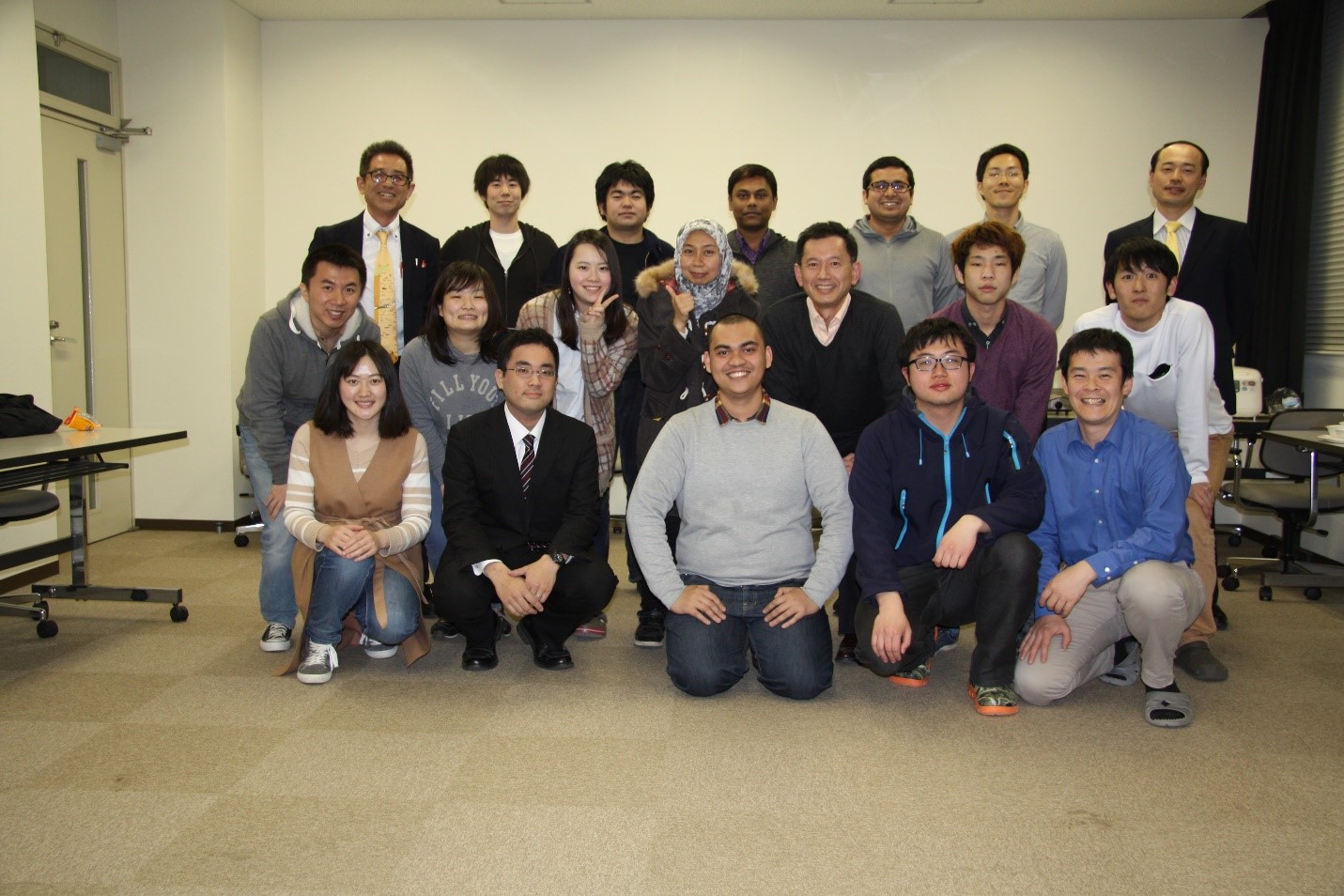[et_pb_section fb_built=”1″ _builder_version=”4.0.11″ custom_padding=”0px||0px||false|false” hover_enabled=”0″][et_pb_row _builder_version=”4.0.11″][et_pb_column _builder_version=”4.0.11″ type=”4_4″][et_pb_text _builder_version=”4.0.11″ hover_enabled=”0″ custom_padding=”0px||0px||false|false”]
KELAUTAN, SEMARANG – Lecturer from the Department of Marine Sciences, FPIK Undip again made his name in the field of marine biotechnology and pharmaceutical biology through the discovery of a new compound called TMKS8A. Dr. Mada Triandala Sibero and his collaborators, Prof. Yasuhiro Igarashi succeeded in isolating and discovering new compounds from the bacteria Streptomyces sp. which lives in association with the mangrove snail Paromoionchis tumidus from the mangrove forest in Mangkang, Semarang. This compound has antimicrobial activity against Bacillus subtilis, Kocuria rhizophila and Staphylococcus aureus, and is able to inhibit the growth of P388 murine leukemia cancer cells.
[/et_pb_text][/et_pb_column][/et_pb_row][et_pb_row _builder_version=”4.0.11″][et_pb_column _builder_version=”4.0.11″ type=”4_4″][et_pb_image src=”https://kelautan.fpik.undip.ac.id/wp-content/uploads/2021/04/Senyawa-Antimikroba-dan-Antikanker-Baru-1.png” _builder_version=”4.0.11″ hover_enabled=”0″][/et_pb_image][et_pb_text _builder_version=”4.0.11″ hover_enabled=”0″]
The structure of the compounds isolated from Streptomyces sp.
[/et_pb_text][et_pb_text _builder_version=”4.0.11″ hover_enabled=”0″]
This research was conducted by Dr. Sibero, through the Sabbatical program, is fully funded by the Biotechnology Research Center, Toyama Prefectural University, Japan from November 2019 to February 2020. He conducts 40% of the research stages in Indonesia and the rest in Japan. In the research process, Dr. Sibero was supervised by Prof. Yasuhiro Igarashi with the help of Dr. Zhang to perform structural elucidation and characterization of compounds. He said that research collaboration with various parties and institutions is the key to producing quality scientific articles so that they can be published in international journals with high impact factors. This is not the first time for Dr. Sibero to report on new compounds that come from the Indonesian sea. Previously, he had also reported a new compound named Karimanone and Karimunones A-B which were isolated from marine molds (fungi). The name of this compound is given as a form of appreciation for the people in Karimunjawa National Park where these sea molds originate. Through this research, Dr. Sibero proved that as a mega-biodiversity country, Indonesia does not only store a wealth of biological resources but also a wealth of natural materials that can be developed for the fields of pharmaceuticals and medicines in the future.
[/et_pb_text][et_pb_text _builder_version=”4.0.11″ hover_enabled=”0″]
Article Links:
- https://www.nature.com/articles/s41429-021-00415-4
- https://www.beilstein-journals.org/bjoc/articles/15/289
- https://japsonline.com/abstract.php?article_id=3052&sts=2
[/et_pb_text][/et_pb_column][/et_pb_row][/et_pb_section]

